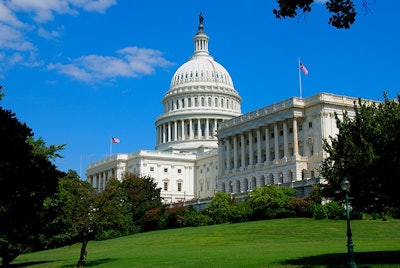
Continuing an ongoing debate first started in 2015 with the bipartisan introduction of the Compassionate Access, Research Expansion and Respect State Act (CARERS Act), two U.S. House reps have reintroduced the bill into the new 2019-2020 U.S. legislative session. The CARERS Act is the first cannabis reform bill to land in the U.S. Congress this year.
The bill would essentially enshrine the Joyce Amendment as law, even bolstering that budget rider's protections for state-legal medical marijuana businesses. In short: The federal government would take a hands-off approach to medical marijuana and allow states to legalize and regulate their own markets. Furthermore, and more pointedly, the CARERS Act would allow the U.S. Department of Veterans Affairs to actively issue medical marijuana recommendations for patients, something that the department has proven reluctant to do.
“The national consensus on medical marijuana is solid and bipartisan, but our federal drug laws continue to treat patients and their doctors like criminals," Cohen said in a public statement. "Our bill would bring federal medical marijuana policy in line with the views of the overwhelming majority of Americans by allowing states to set their own marijuana laws, allowing patients, including veterans, to receive the treatments they need from their doctors and improving opportunities for research on marijuana.”
The full text of H.R. 127, the CARERS Act, has not yet been posted to the U.S. House website.
On Jan. 3, U.S. Sen. Cory Booker (D-NJ), who has lent his sponsorship to numerous cannabis reform bills, announced his support for the bill. (Booker was a primary sponsor of the previous CARERS Act incarnations.) “By ensuring that states are able to set their own medical marijuana policies, the CARERS Act will help ensure access to treatment for those who benefit from medical marijuana—from children suffering from chronic illnesses to veterans battling PTSD,” he said.


























